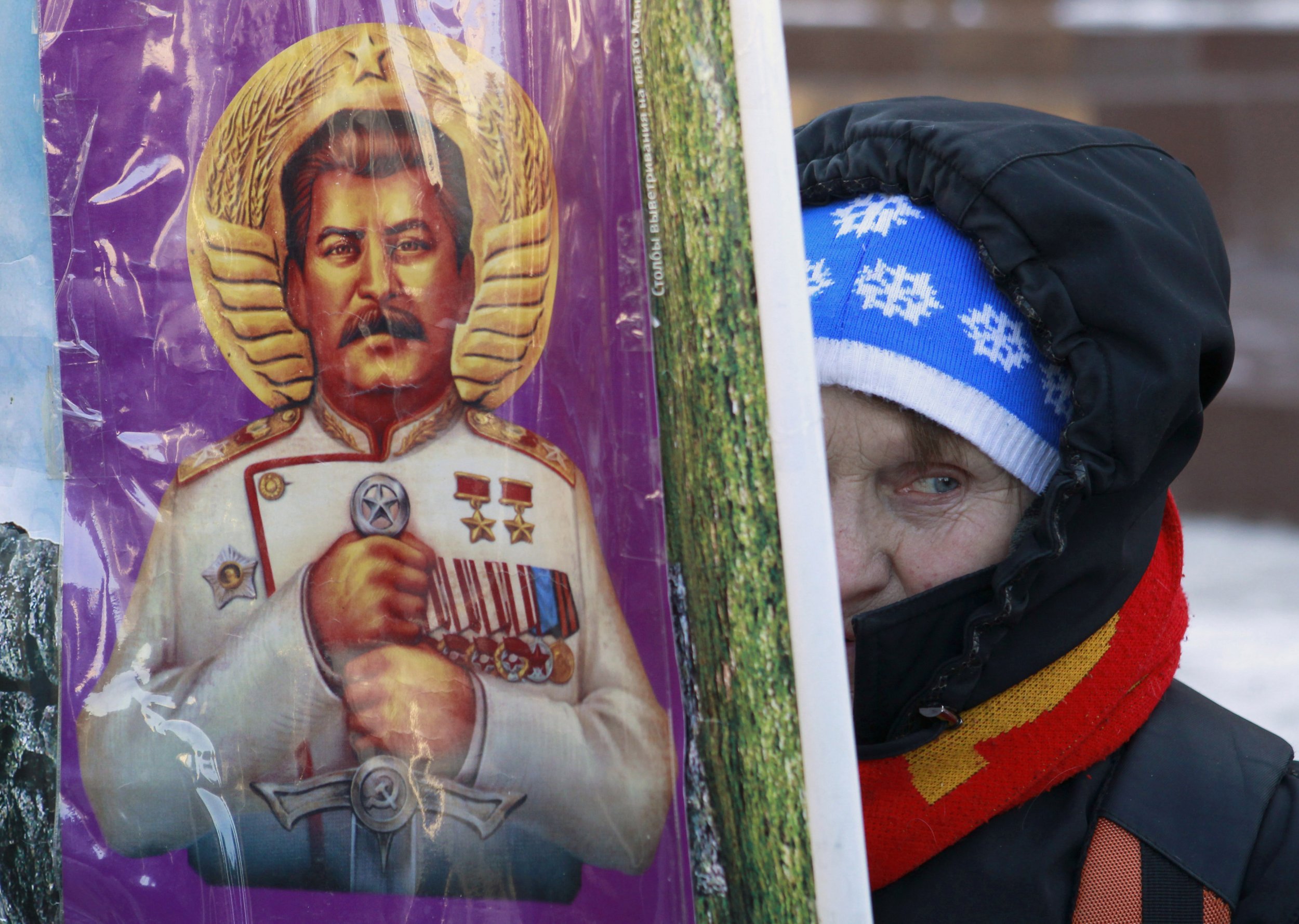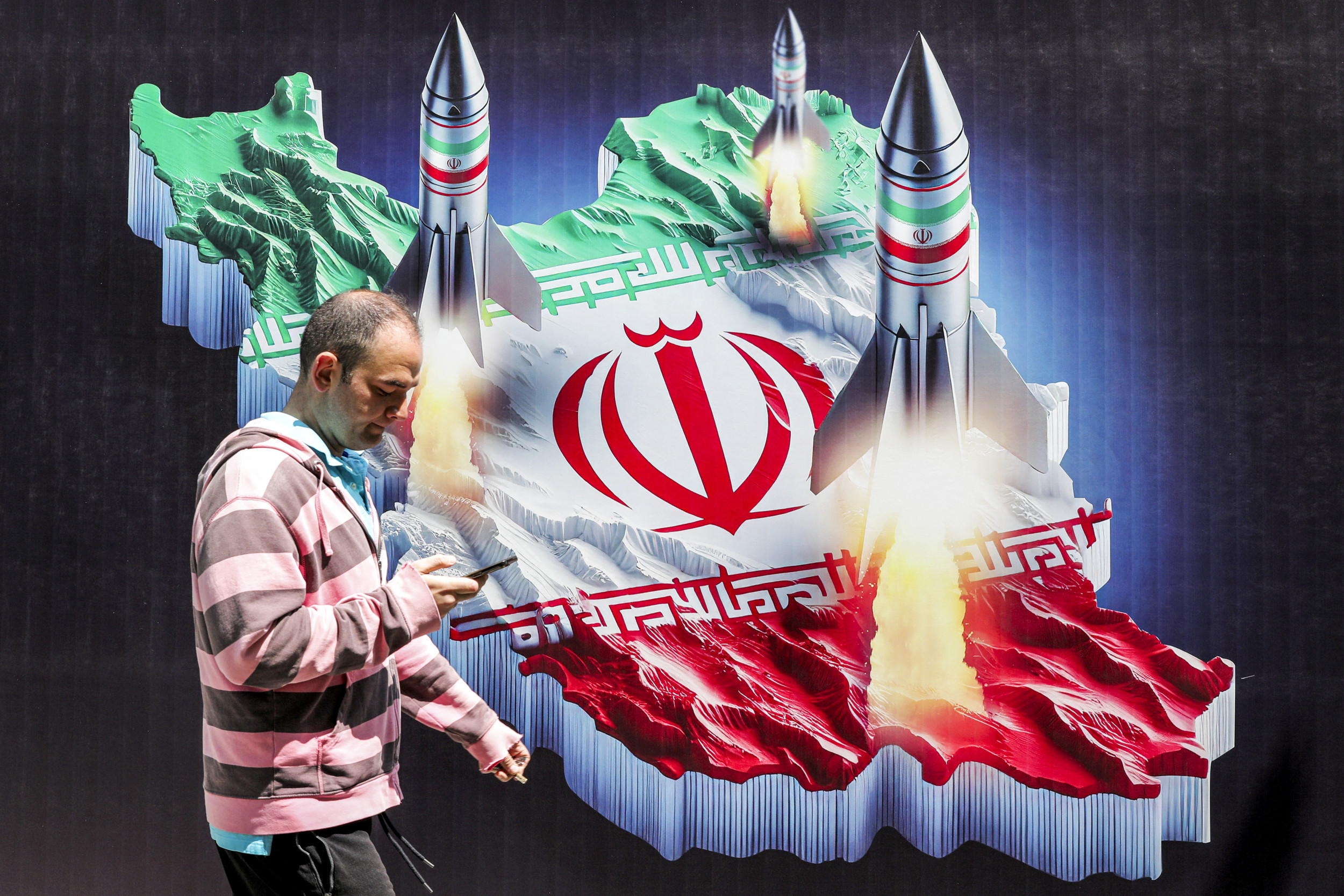
Russia's Communists are livid and the Kremlin is acting coy. British director Armando Iannucci's satirical film The Death of Stalin faces an uncertain future in Russia—the country the Georgian autocrat ruled over for nearly three decades.
The spokesman of the Communist Party—the one Joseph Stalin once chaired in his one-party regime and still Russia's second largest in parliament—has called the picture an "abomination." Alexander Yushchenko, the party's mouthpiece, on Wednesday urged the government not to allow the picture to play in Russia, days after the Culture Ministry said they would consider banning the film if it "inflamed passions."
The dark comedy has provoked plenty of controversy in Russia, even before its full release in Europe. Communist Party Central Committee Chief Sergey Obukhov was the latest to complain about the satirical tale of Stalin's death, telling state news agency RIA Novosti that it was "another form of psychological warfare against our country." The movie's premise is loosely based on the immediate aftermath of Stalin's death in 1953 and the internal wrangling for succession between a group of men, each with their own idiosyncratic ties to the deceased generalissimo.
For Russia's Communists, the objection lies in its portrayal of the party's former leaders. Obukhov said it "discredits the leaders of the country and even worse, the supreme commander in chief during the war years."
"This is a denigration of Russia's role in world global affairs," he added.
{"id":"ukJ5dMYx2no","type":"widget","widget":"video","ratio":"16by9"}
Earlier in the week, Russian Civic Chamber member and adviser to the Culture Ministry Pozhigailo told the BBC that the body would advise that the government should closely consider the film before certifying it for release.
"If this is another gift to Russia from the West where another Russian historical figure is made fun of and showered with indignation, then of course there will be feelings of disdain, especially because this was not shot in Russia," he said. "If we are talking about Stalin, then I think portraying such a figure in a joking tone is not appropriate."
Pozhigailo referred to another controversial release of 2017, Russian-made movie Mathilda, about an alleged affair of Russia's church-loving last Czar, Nicholas II. Though the government licensed the film to play in Russia, it provoked such controversy that cinemas have dropped it for fear of arson attacks. One member of parliament has railed against it as a flagship policy since stepping into the role last year, accusing it of violating the law on offending religious believers.
Prodding the topic of Stalin, who beat Putin and Russia's most renowned poet Alexander Pushkin in a poll of Russia's most respected historical figure earlier this year, is an even more incendiary matter than the illicit romances of any deposed monarch.
Officially the Russian government has issued an undecided line on the picture, as Putin's spokesman Dmitry Peskov has called on the Culture Ministry to "regard the licensing to show such a contested film, responsibly and more carefully," RIA reported earlier this week.
Russia's Culture Minister Vladimir Medinsky denied any knowledge of the film on Monday, calling on the studio to send him a copy if they wanted it shown in Russia, RIA reported. "Show us the copy and the Ministry of Culture will review it according to legal procedure."
In a statement to Russian business news channel RBC on Wednesday, Russia's Culture Ministry said it had received no request from the filmmakers to license the Death of Stalin for the Russian market and has therefore not yet considered red-flagging its content.
Uncommon Knowledge
Newsweek is committed to challenging conventional wisdom and finding connections in the search for common ground.
Newsweek is committed to challenging conventional wisdom and finding connections in the search for common ground.
About the writer
I am a Staff Writer for Newsweek's international desk. I report on current events in Russia, the former Soviet Union ... Read more
To read how Newsweek uses AI as a newsroom tool, Click here.








